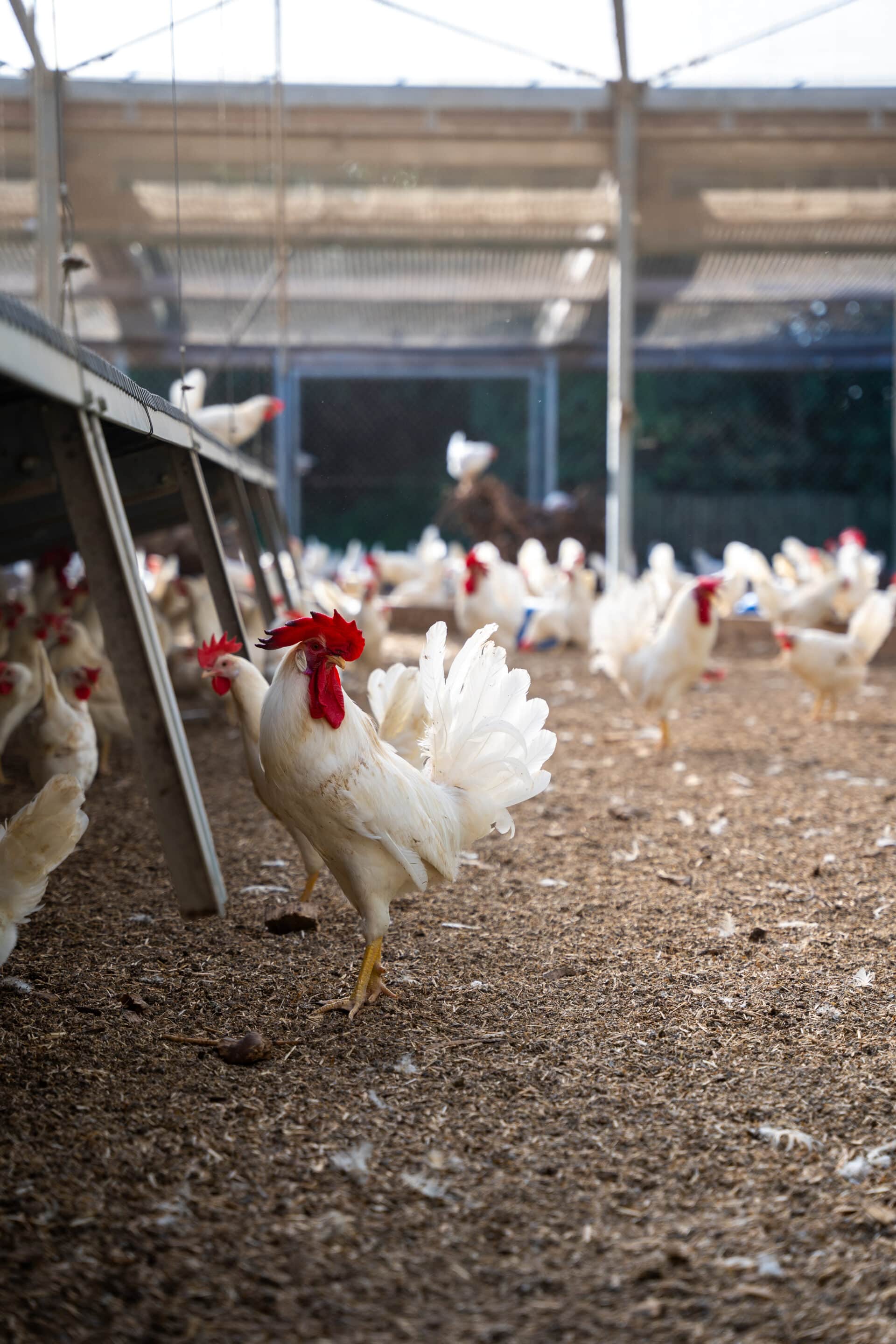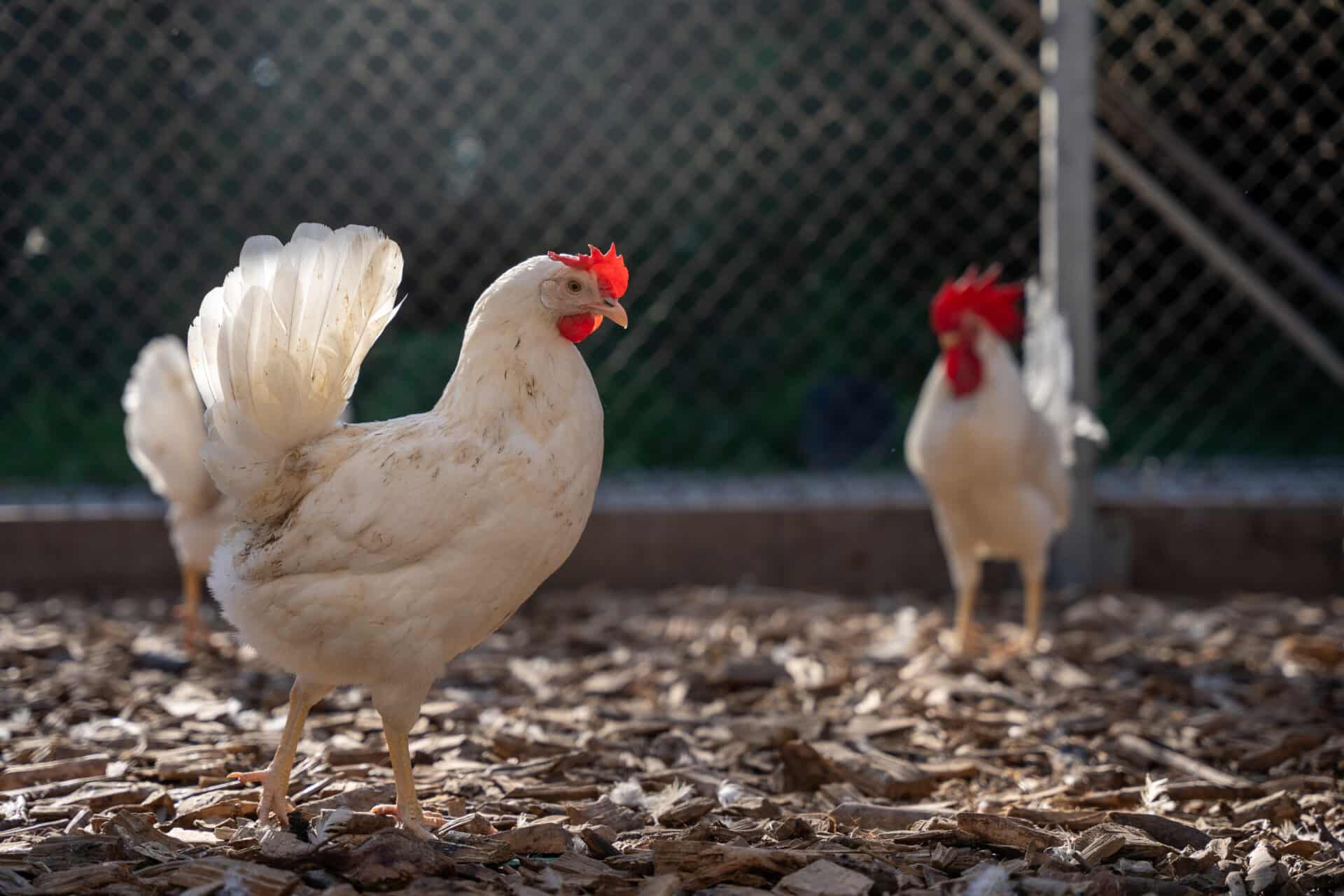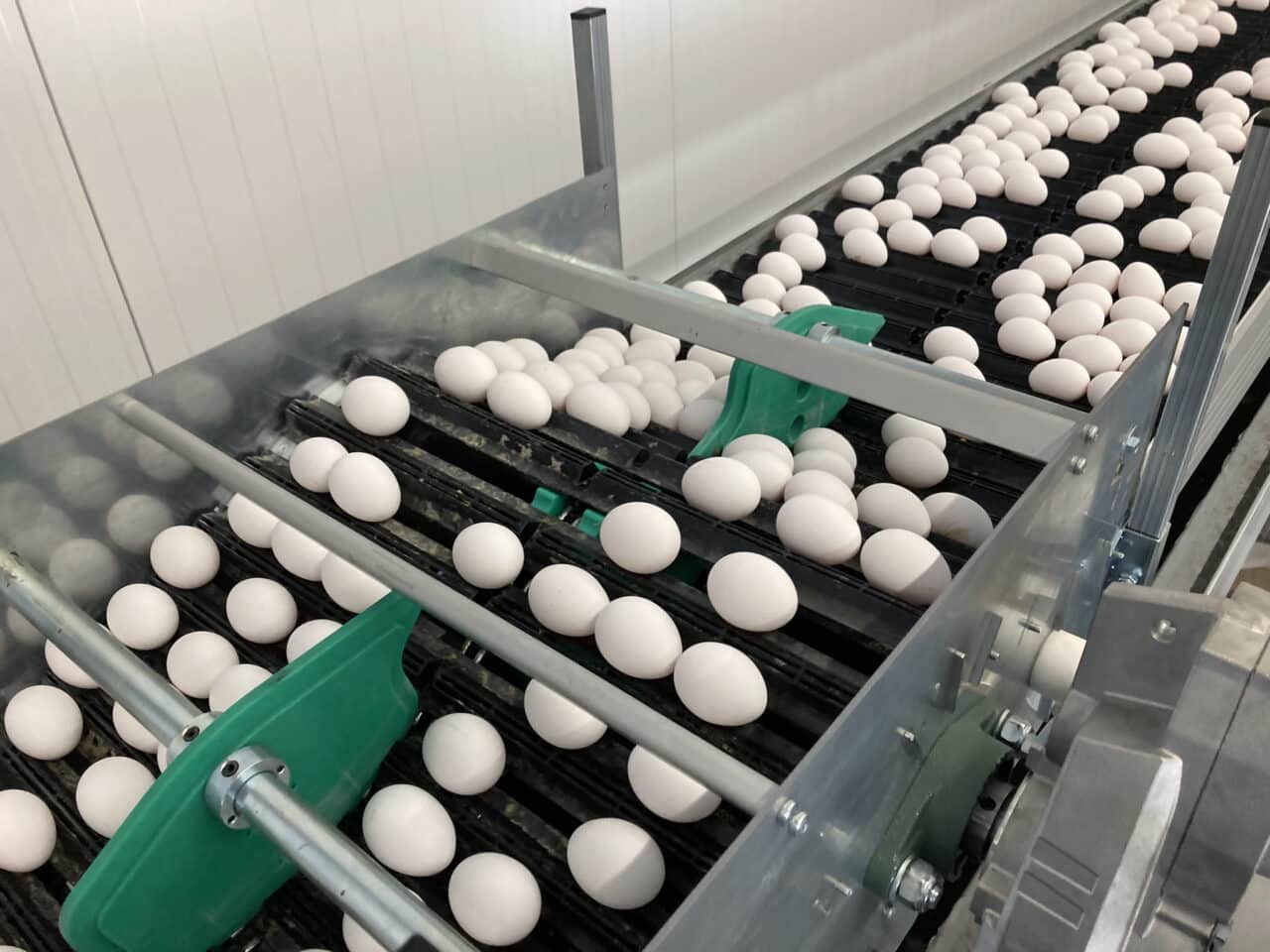Rondeel is switching to white eggs — here’s why.
Rondeel is switching to hens that lay white eggs. These hens are smaller, eat less, and lay more eggs over their lifetime than hens that lay brown eggs. As a result, less feed is needed per egg, which helps reduce CO2e emissions.
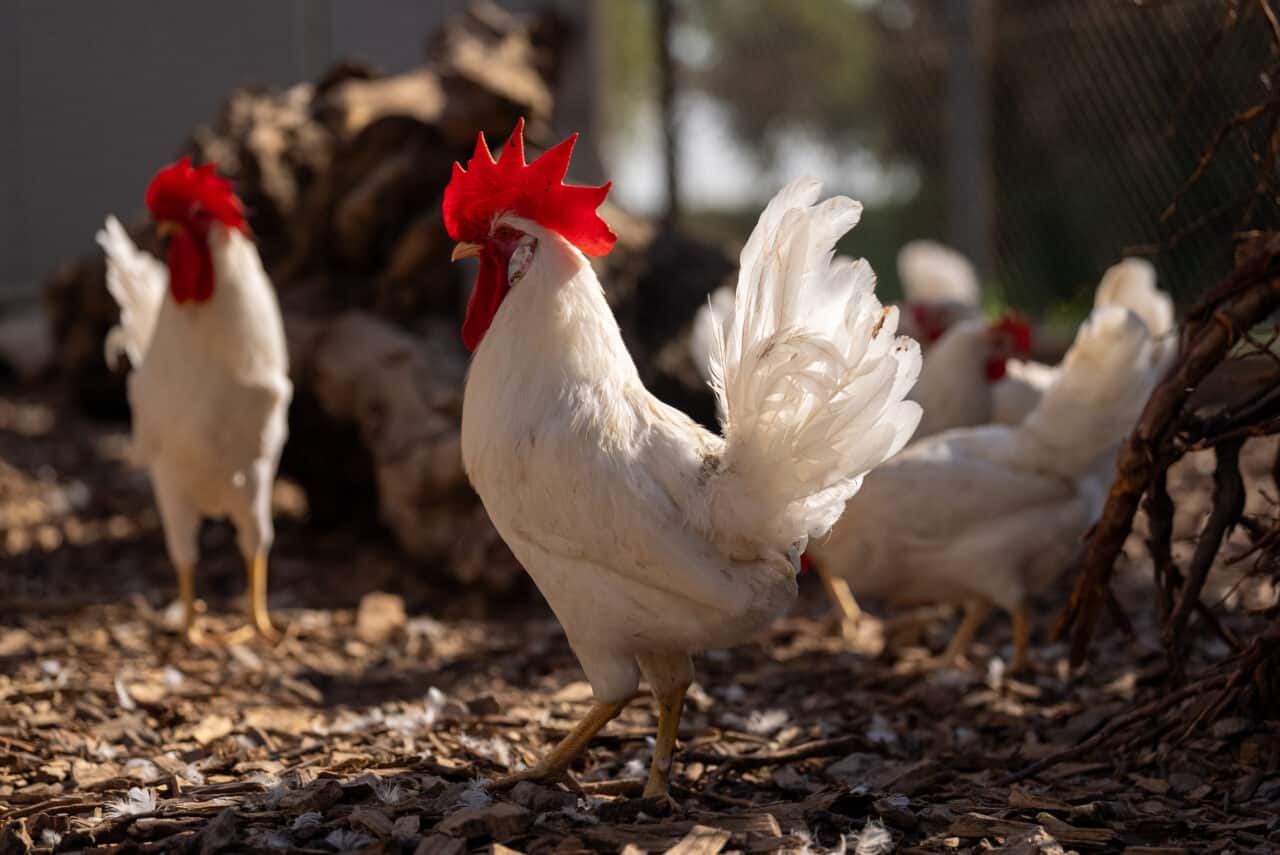
Available at the Albert Heijn
Discover the animal-friendly choice! Rondeel eggs, available at your Albert Heijn.


About us
Rondeel stands for socially responsible poultry farming, with the highest animal welfare and environmental standards.
We offer safe and responsible production, with a commitment to transparency. More and more consumers are demanding disclosure, and we are happy to provide it.
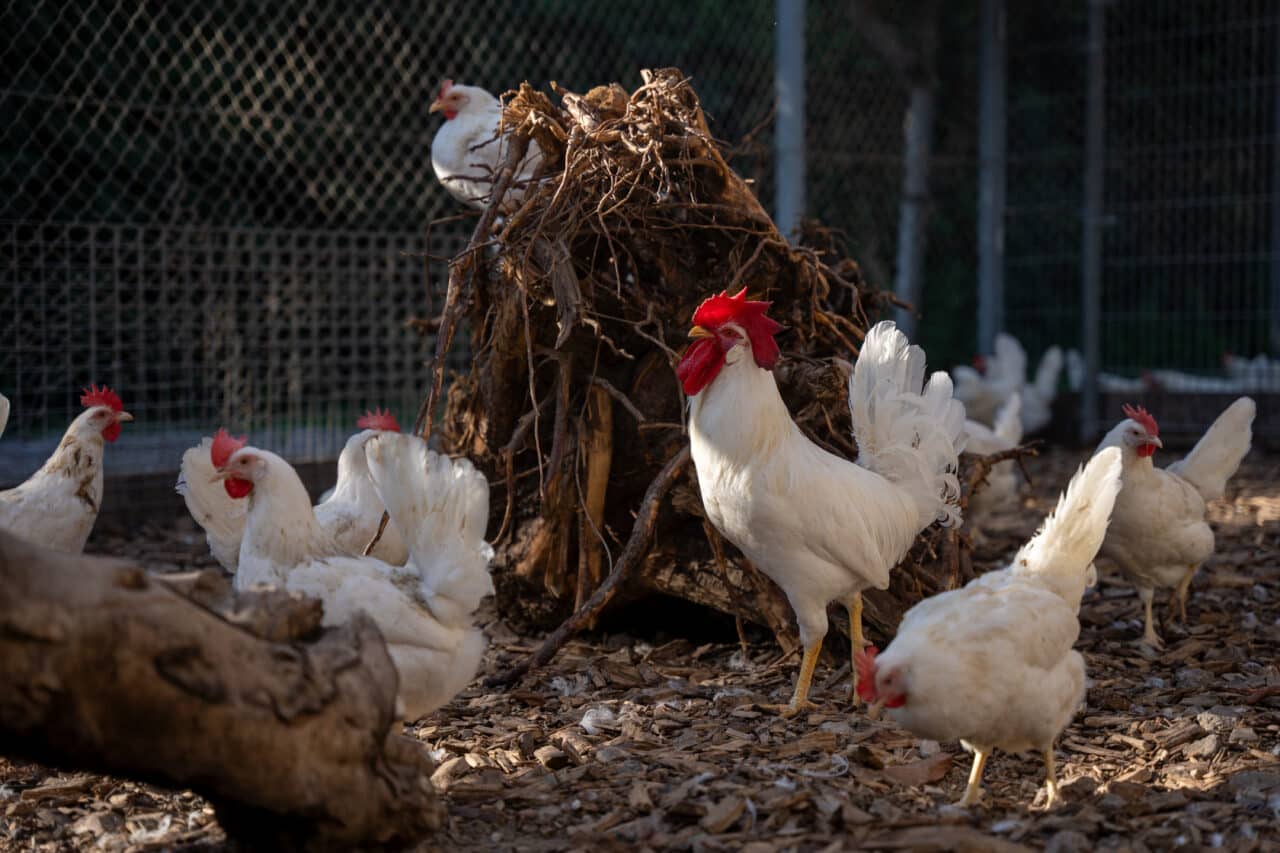
Our partners
Frequently Asked Questions
A bio-based and biodegradable packaging made from potato starch, such as Paperfoam, was chosen. This material is also made from (waste) residual streams from French fry factories (non-edible potato starch). There is currently no more sustainable packaging available—experts indicate that this is a leading example of future packaging solutions (including the KIDV, which advises our legislators).
However, as with many truly groundbreaking innovations, current legislation is (still) not yet adapted to such advanced solutions.
The unique Rondeel egg Paperfoam packaging is ahead of its time and highly innovative because it:
– Can be disposed of with waste paper (this has been the case for Paperfoam products from the beginning for recycling)
– Can go with organic waste (it composts—feel free to try it at home in your garden—without any issues) / (not the label)
– Can go with residual waste
European Union classification system: The code on the egg indicates the housing system: 0 = organic, 1 = free-range, 2 = barn, 3 = caged. This is required by law, so it must appear on the egg.
The housing system code is a technical specification (determined by regulations/European policy) based on available equipment. It is not intended as an assessment or classification of animal welfare.
The hens live on litter, wood chips, tree trunks (natural wood), rubber mats, and in a metal enclosure. The base of Rondeel is completely made of concrete to allow for proper cleaning (hygiene) between flocks when new hens are introduced.
Our hens do not come into contact with natural soil, so there is no risk of contaminated ground when they go outdoors along the forest edge.
To be absolutely certain—after all, it concerns food safety—we had Rondeel eggs tested in a laboratory. The results show that the eggs are free from PFAS.
